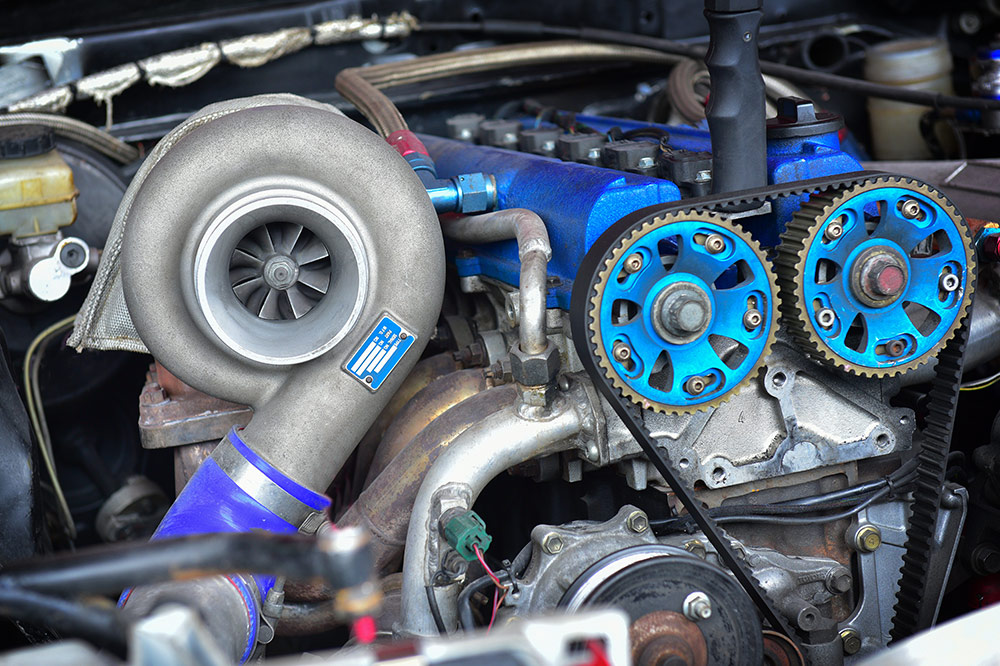
Turbocharger bearings need a constant flow of clean oil in order to function properly, however, several factors can lead to the breakdown of the oiling system, for example, lack of maintenance, improper oil, severe driving conditions, or simply the age of the vehicle. We recommend changing the oil and the filter as the oil changes from its original golden brown to a darker brown.
Engines today run on high water and oil temperatures to help with emissions and fuel economy. This heat can be hard on the oil, and can cause it to break down on a molecular level, which results in reduced lubrication and viscosity. This increased heat also increases further when you shut down the engine, in order to prevent this issue somewhat, we advise that you let the car idle for about 1.5 minutes after you have been driving at high speeds, instead of just shutting the engine off.
The compressor wheel in your turbocharger is extremely delicate, any particle that enters it can be extremely detrimental to the health of the turbo. Foreign objects can enter the compressor from the air filter system, or through the turbine inlet. Any time you service your air filter you should be sure to thoroughly inspect all of the systems for loose connections, or small amounts of dirt or debris that could accidentally enter the filter housing.
If there is a leak between the compressor and the engine then the turbocharger will have a hard time maintaining proper pressure. Even a small leak can cause the turbocharger to work 20% harder than normal, so good attention needs to be given to all plumbing systems surrounding the turbocharger. Inspect the hoses and fittings, looking closely for holes that could cause leaks.
Still need the advice of an expert? Our team offers a range of turbo repair and reconditioning options. Get in touch so we can get you booked in.